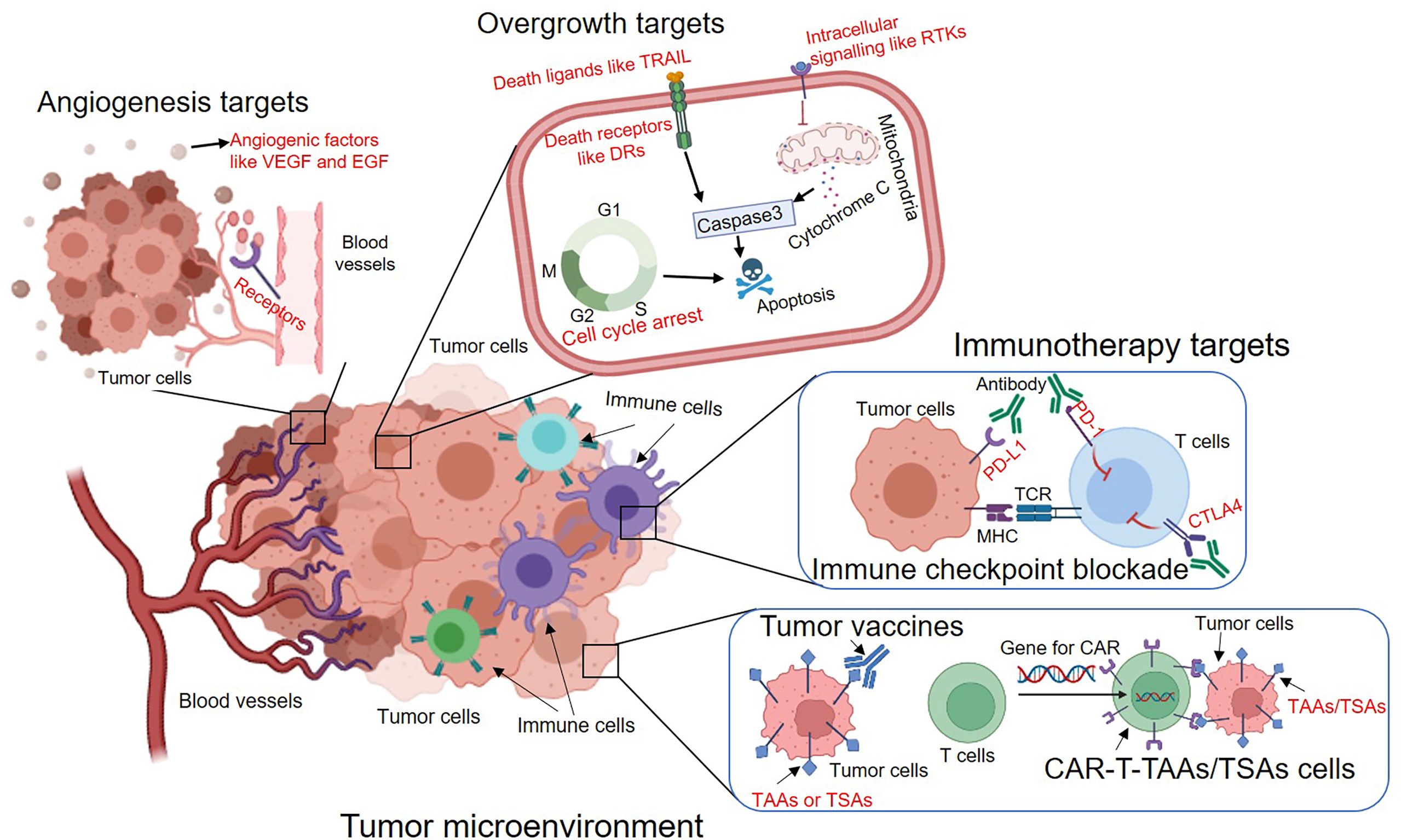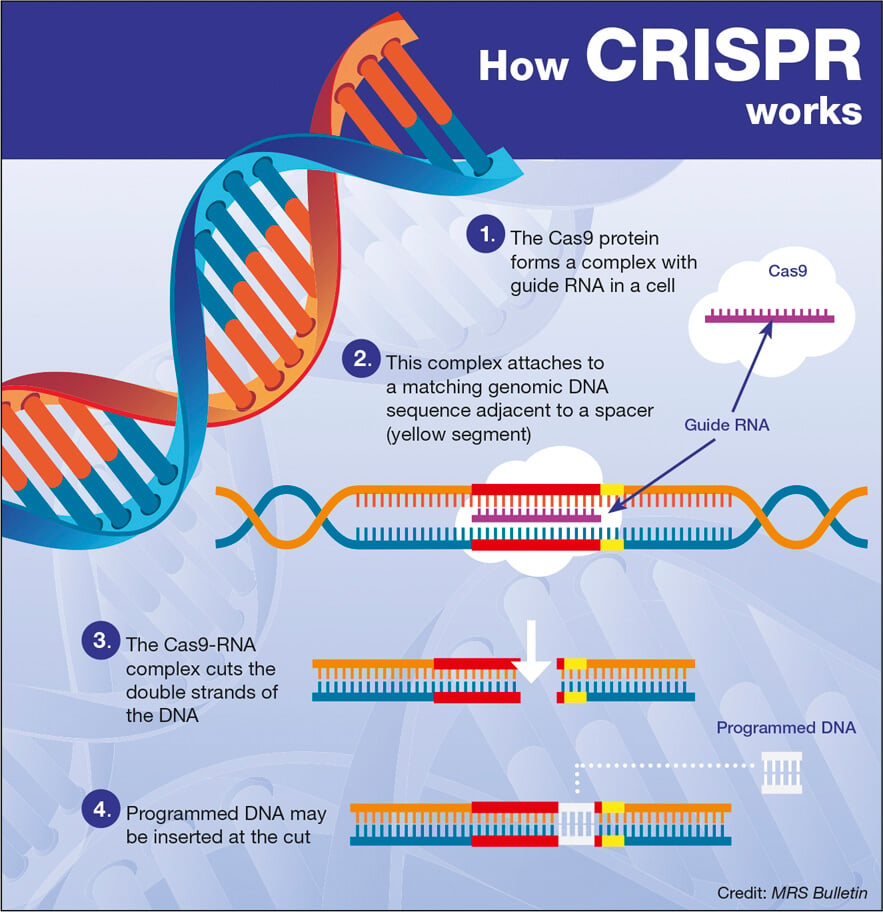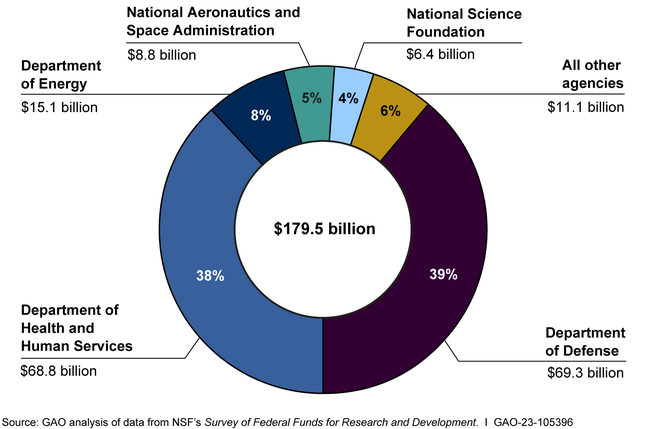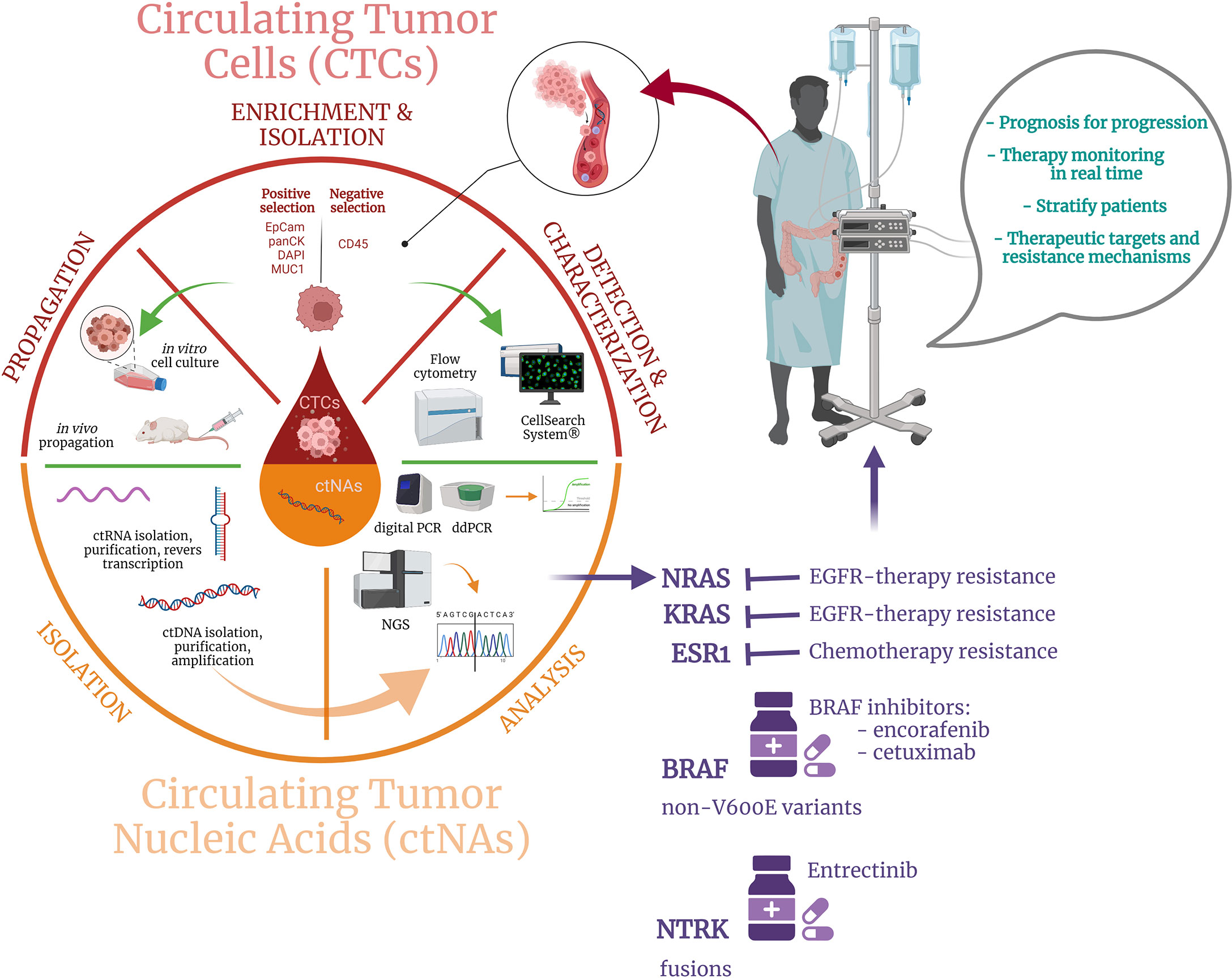Targeted molecular therapies represent a groundbreaking approach in cancer treatment, specifically designed to identify and disrupt the mechanisms that drive tumor growth at a molecular level. These therapies focus on specifically targeting cancer cells while sparing healthy cells, enhancing the effectiveness of treatment and reducing side effects. Recent advances, such as the discovery of novel molecular glues, pave the way for more sophisticated drug design that leverages protein interactions to counteract the effects of cancer. In pediatric brain cancer, where treatment options remain limited, these innovative strategies are particularly promising, providing hope for better outcomes. As research continues to evolve, targeted molecular therapies may redefine the landscape of cancer treatment, unlocking new pathways to combat this devastating disease.
Also referred to as precision medicine, targeted molecular therapies harness advanced scientific insights to tailor treatments at a cellular level, optimizing care based on the unique genetic makeup of an individual’s cancer. By employing techniques that manipulation of protein interactions, these therapies highlight the potential of molecular glues to create unprecedented opportunities for combating malignancies, including those found in pediatric brain cancer. Rather than a one-size-fits-all approach, this methodology emphasizes the importance of personalized treatment strategies that reflect the distinct characteristics of tumors. As researchers delve deeper into novel drug design, the intersection of genetics and molecular biology fosters new avenues for intervention, ultimately enhancing therapeutic efficacy. The shift towards this personalized approach signifies a transformative milestone in our fight against cancer.
Understanding Targeted Molecular Therapies in Cancer Treatment
Targeted molecular therapies represent a revolutionary approach in cancer treatment, focusing on the specific pathways and genetic mutations that contribute to the uncontrolled growth of cancer cells. Unlike traditional therapies, which often affect both healthy and cancerous cells alike, targeted therapies aim to identify and interfere with specific molecular targets associated with malignancy. This method enhances the precision of cancer treatment, potentially leading to better outcomes for patients and fewer side effects.
Recent advancements in targeted molecular therapies, particularly the discovery of molecular glues, have further expanded the range of options available for treating various cancers, including those caused by complex genetic mutations. Studies have shown that understanding the interaction of specific proteins can lead to the development of novel drug design strategies that can manipulate these interactions to inhibit cancer growth. This scientific progress underscores the importance of molecular understanding in advancing effective cancer treatment.
The Role of Molecular Glues in Cancer Research
Molecular glues are pivotal in the realm of cancer research, as they create new binding interactions between proteins that would not typically engage with one another. This capability allows for innovative strategies to target and degrade disease-driving proteins, an approach that can be transformative in managing conditions like pediatric brain cancer. Research surrounding molecular glues, such as UM171, has shown promise in disrupting essential protein networks in cancer cells, revealing pathways previously considered ‘undruggable’.
One of the remarkable aspects of molecular glues is their potential to serve as therapeutic agents against specific cancer mutations. By understanding how these small molecules can alter protein interactions and induce degradation of pivotal cancer-related proteins, researchers are paving the way for new treatment modalities that are more effective and personalized. As the field of molecular therapies evolves, the integration of molecular glues into cancer treatment regimens could significantly change the prognosis for many patients.
Genetic Mutations in Pediatric Brain Cancer: Uncovering New Targets
Pediatric brain cancer, particularly medulloblastoma, often involves complex genetic mutations that contribute to its aggressive nature. Recent research has identified specific mutations in proteins like KBTBD4 that can destabilize critical cellular structures, leading to aberrant behavior in cancer cells. Understanding these mutations is essential for developing targeted therapies that can directly address the underlying causes of these cancers.
By leveraging technologies such as cryo-electron microscopy, scientists have begun to visualize these mutations at an atomic level, enabling a clearer understanding of how they influence protein interactions. This knowledge not only aids in the lore of targeted therapies but also fosters innovative approaches to drug design, allowing for the development of treatments tailored specifically to the genetic profile of individual patients, ultimately improving outcomes in pediatric brain cancer.
Innovative Strategies for Novel Drug Design
The intersection of genetic understanding and molecular design has led to innovative strategies in novel drug design, particularly in the context of cancer therapies. Researchers are now exploring how specific genetic mutations can inform the identification of molecular glues that target disease-related proteins effectively. This convergence has the potential to revolutionize how new drugs are conceptualized and developed, focusing on the precise mechanisms at play within cancer cells.
As scientists continue to unravel the complexities of protein interactions and the role of genetic alterations in cancer, the field of drug design is positioned to create more effective therapies. This shift toward precision medicine, where treatments are tailored based on the molecular data of a patient’s cancer, represents a groundbreaking approach that could significantly enhance treatment efficacy and patient survival rates.
The Promise of Multidisciplinary Research in Cancer Therapy
Multidisciplinary research is vital in the quest to develop effective cancer therapies. By combining insights from chemistry, biology, and genetics, researchers are gaining a more comprehensive understanding of cancer mechanisms. This approach has facilitated the discovery of novel molecular interactions, such as those seen with molecular glues, enabling scientists to create targeted therapies that can address specific cancer types more effectively.
The collaborative efforts across various institutions underscore the importance of shared knowledge and resources in advancing cancer research. Such collaborations often bring together expertise from different fields, leading to innovative breakthroughs that may not be possible within a single discipline. As scientists continue to explore the intricate details of protein interactions and genetic mutations, the potential for developing groundbreaking therapies becomes increasingly attainable.
Investigating Protein Interactions in Cancer Cells
Understanding protein interactions is crucial for pinpointing vulnerabilities in cancer cells. Researchers are now focusing on how specific mutations can alter the landscape of protein interactions, contributing to cancer progression. By investigating these interactions, scientists can identify opportunities to disrupt malignant pathways and design targeted therapies that can restore normal cellular function.
The insights gained from studying protein interactions also assist in uncovering regulatory mechanisms within cancer cells. These findings contribute to a greater understanding of how tumors resist treatment and adapt to selective pressures from therapies. Thus, unraveling protein interactions not only aids in developing targeted therapies but also enhances the overall knowledge base of cancer biology.
Advancements in Cancer Treatment: A Future Beyond Traditional Methods
Advancements in targeted therapies represent a paradigm shift in cancer treatment. As researchers delve deeper into the molecular underpinnings of cancer, it is becoming evident that traditional approaches may not fully capture the complexity of the disease. Targeted molecular therapies aim to combat cancer by integrating genetic and chemotherapeutic insights, offering a tailored approach to each patient’s unique cancer profile.
Looking ahead, the integration of new biomarkers and targeted molecular therapies will likely lead to treatment regimens that are more effective and personalized. These strategies can minimize adverse effects while optimizing therapeutic efficacy, ultimately transforming the landscape of cancer care. This vision for the future underscores the importance of continued research in molecular therapies, emphasizing the need for innovative approaches that address the challenges presented by various cancer types.
The Importance of Funding in Cancer Research
Funding plays a crucial role in advancing cancer research, enabling scientists to explore innovative methodologies, such as those involving molecular glues and targeted therapies. National institutes, like the National Cancer Institute, provide essential financial support that allows researchers to delve into the complex mechanisms of cancer and to develop promising new treatment paradigms. Without adequate funding, many groundbreaking studies might not progress from concept to clinical implementation.
The support of governmental and private funding sources is instrumental in facilitating collaboration among research institutions. These partnerships often accelerate the pace of discovery and promote the sharing of knowledge and technology, which is vital for tackling the multifaceted challenges posed by cancer. As the demand for more effective and targeted treatments grows, ensuring robust funding for cancer research remains a top priority.
Future Directions in Cancer Research and Therapies
The future of cancer research is poised for exciting developments, particularly with the ongoing studies into targeted molecular therapies and their applications. As more is understood about the genetic and chemical aspects of cancer, researchers anticipate breakthroughs that will significantly alter treatment paradigms. The emergence of technologies enabling precise targeting of protein interactions holds promise for effective therapies against previously resistant cancers.
Moreover, as interdisciplinary collaborations continue to flourish, the integration of various scientific disciplines will yield novel insights and therapeutic modalities that transcend current limitations. By embracing a comprehensive approach to understanding cancer at the molecular level, scientists aim to create a future where cancer can be managed more efficiently and compassionately, improving outcomes for patients across the globe.
Frequently Asked Questions
What are targeted molecular therapies and how do they relate to cancer treatment?
Targeted molecular therapies are a form of cancer treatment that focus on specific molecular markers and pathways involved in cancer progression. By identifying and targeting these molecules, therapies can precisely disrupt cancer cell growth and survival, often leading to improved treatment efficacy with fewer side effects compared to traditional chemotherapy.
How do molecular glues work in targeted molecular therapies for cancer?
Molecular glues are small molecules that enhance or enforce interactions between proteins that do not typically interact. In the context of targeted molecular therapies, these glues can initiate a cell’s degradation mechanisms to eliminate disease-causing proteins, thereby disrupting cancer processes and presenting new avenues for drug design.
What insights have recent studies on molecular glues provided for pediatric brain cancer treatments?
Recent studies have highlighted how specific mutations in pediatric brain cancer, such as medulloblastoma, can mimic the action of molecular glues. This understanding allows researchers to explore novel therapeutic strategies that target altered protein interactions, setting the groundwork for innovative targeted molecular therapies designed specifically for these aggressive cancers.
What role do protein interactions play in the development of targeted molecular therapies?
Protein interactions are crucial in the development of targeted molecular therapies, as they govern cell signaling and function. By understanding how specific proteins interact and how these interactions can be modified with small molecules like molecular glues, researchers can design therapies that more effectively disrupt cancer-related pathways.
How is novel drug design influenced by findings related to molecular glues and cancer mutations?
Findings related to molecular glues and cancer mutations inspire novel drug design by identifying potential targets that were previously considered undruggable. By demonstrating how certain mutations affect protein interactions, researchers can create new small molecules that specifically target these altered interactions, paving the way for advanced targeted molecular therapies.
What advancements have been made in the field of targeted molecular therapies through cryo-electron microscopy?
Cryo-electron microscopy (cryo-EM) has enabled researchers to visualize the atomic-level structure of proteins affected by mutations in cancers. This technology has allowed scientists to understand how these mutations influence protein interactions, leading to breakthroughs in targeted molecular therapies that can selectively influence these altered interactions in cancer cells.
Why is understanding the convergence of chemical and genetic approaches important for targeted molecular therapies?
Understanding the convergence of chemical and genetic approaches is important because it allows researchers to leverage genetic information to discover new molecular glue candidates or therapeutic targets. This innovative strategy can enhance the efficacy of targeted molecular therapies and facilitate the development of personalized cancer treatments.
What is the future outlook for targeted molecular therapies based on recent research findings?
The future of targeted molecular therapies looks promising as ongoing research continues to uncover new molecular mechanisms and potential therapeutic targets. The integration of advanced technologies and a deeper understanding of protein dynamics are expected to enhance drug discovery and development, potentially transforming treatment approaches for various types of cancer.
| Key Points |
|---|
| Researchers have advanced targeted molecular therapies for cancer by exploring ‘molecular glues’ and genetic mutations. |
| New molecular therapies aim to disrupt uncontrolled cancer growth at its roots. |
| Molecular glues can bind proteins to trigger degradation, targeting previously undruggable proteins. |
| The studies utilized techniques like functional genomics and cryo-electron microscopy to visualize protein interactions. |
| A convergence of small molecules and genetic mutations can replicate similar effects, aiding drug development. |
| Future research will identify more mutations to broaden the spectrum of targeted therapies beyond cancer. |
Summary
Targeted molecular therapies represent a revolutionary approach in cancer treatment, combining innovative small molecules and genetic insights to disrupt the mechanisms of uncontrolled cancer cell growth. This emerging field not only enhances our understanding of cancer biology but also opens new avenues for drug discovery, potentially benefiting a range of diseases beyond oncology.









